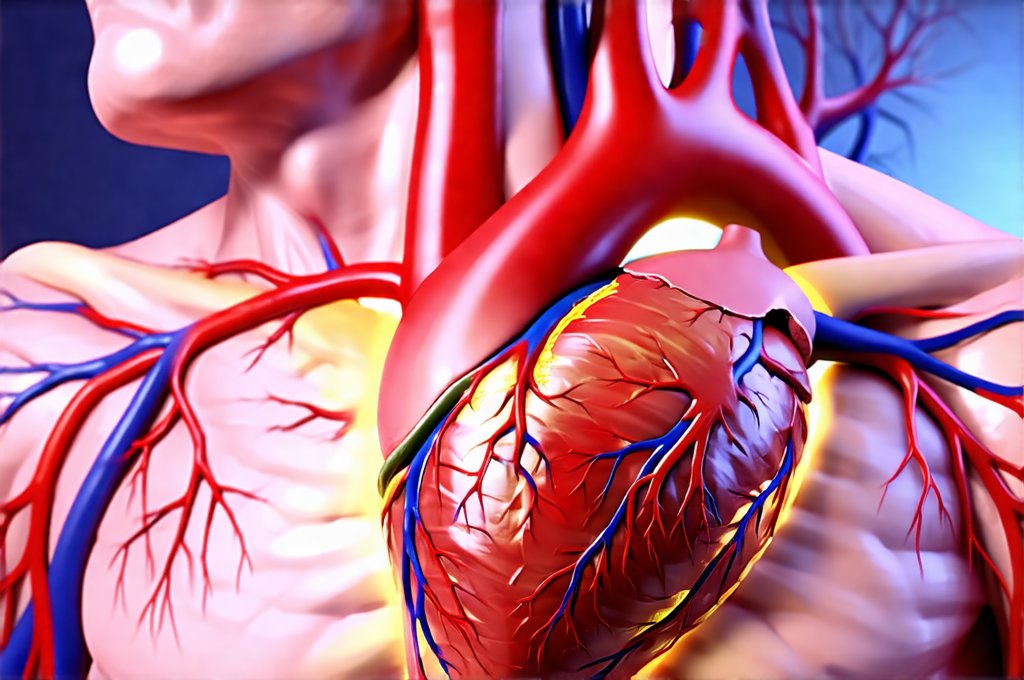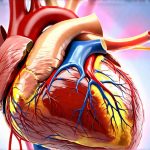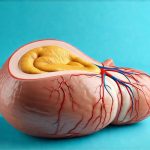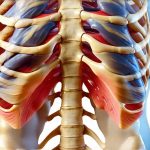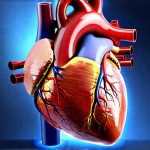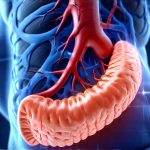The chest pain is gripping, tight, and radiating down your left arm. Your heart races, you feel short of breath, and a wave of panic washes over you. It’s natural to immediately fear the worst – a heart attack. But what if that agonizing discomfort isn’t cardiac in origin at all? For many people, acid reflux—that familiar heartburn after a spicy meal—can masquerade as serious heart problems, leading to unnecessary anxiety and even emergency room visits. This often occurs because the esophagus, where acid reflux symptoms are felt, sits very close to the heart, and pain signals from both can be interpreted similarly by the brain. Distinguishing between these two conditions is crucial for appropriate care and peace of mind.
The overlap in symptoms stems from shared nerve pathways. Both heart issues and esophageal spasms triggered by acid reflux can cause chest discomfort, radiating pain, shortness of breath, and even nausea. The vagus nerve, a major cranial nerve, plays a role in both cardiac function and digestive processes. When the esophagus is irritated by stomach acid, signals travel along this nerve, mimicking cardiac symptoms. Furthermore, anxiety often accompanies both conditions – fear exacerbates heart problems and intensifies the perception of reflux pain, creating a vicious cycle where it becomes difficult to discern the true source of discomfort. This article will explore how acid reflux can mimic heart issues, what warning signs to watch for, and when to seek medical attention.
The Mimicry: How Acid Reflux Can Feel Like Heart Disease
Gastroesophageal reflux disease (GERD), the chronic form of acid reflux, often presents with symptoms that are strikingly similar to those of angina—chest pain caused by reduced blood flow to the heart. This can be incredibly frightening for individuals who have a history of cardiac issues or simply fear developing them. The discomfort from GERD isn’t usually the burning sensation most associate with heartburn; instead, it frequently manifests as chest tightness, pressure, or even sharp pains that closely resemble angina pectoris. The location also contributes to the confusion – both conditions are often felt in the center of the chest, sometimes radiating to the arm, jaw, neck, or back.
A key difference lies in what typically triggers each type of pain. Cardiac pain is often brought on by exertion, stress, or cold weather and relieved by rest or nitroglycerin. Acid reflux-related discomfort, however, tends to occur after eating, when lying down, or bending over—situations that increase pressure on the stomach. It can also be relieved by antacids or medications designed to reduce stomach acid production. However, even this distinction isn’t foolproof, as stress can worsen both conditions and some individuals experience atypical angina that doesn’t follow these patterns. The similarity is so strong that doctors often refer to GERD-related chest pain as “pseudoangina.”
The problem is further complicated by the fact that some people with heart disease also suffer from GERD. This means they may be experiencing both conditions simultaneously, making it even harder to pinpoint the source of their discomfort. It’s not uncommon for individuals with existing heart conditions to mistakenly attribute GERD symptoms to a worsening cardiac problem, leading to unnecessary emergency room visits and heightened anxiety levels. Understanding these nuances is essential for accurate self-assessment and appropriate medical evaluation.
Differentiating Factors: Clues Beyond Chest Pain
While the overlap in chest pain can be unsettling, several other clues can help differentiate between acid reflux and heart problems. These aren’t definitive diagnoses, but they offer valuable insights that should be considered alongside your symptoms.
First, pay attention to associated symptoms. Heart attack symptoms often include profound weakness, sweating, dizziness, and a sense of impending doom. While anxiety from GERD can cause some of these feelings, the intensity and sudden onset are typically more pronounced in cardiac events. Acid reflux is more likely to be accompanied by a sour taste in the mouth, regurgitation (the sensation of food coming back up), or chronic cough. However, it’s critical to remember that some heart attacks present atypically, without these classic symptoms, especially in women and people with diabetes.
Second, consider your risk factors. Do you have a family history of heart disease? High blood pressure, high cholesterol, diabetes, or smoking are all significant cardiac risk factors. While GERD is more common in individuals who are overweight, smoke, or consume large meals, these aren’t the same as direct indicators of cardiovascular health. If you fall into any high-risk category for heart disease, it’s always best to err on the side of caution and seek medical attention immediately if you experience chest pain.
Third, observe how your symptoms respond to different interventions. As mentioned earlier, antacids or acid-reducing medications often provide relief from GERD-related discomfort. If your chest pain is significantly alleviated by these treatments, it’s more likely to be reflux related. However, nitroglycerin – a medication used to treat angina – will not relieve symptoms caused by acid reflux and should only be taken if prescribed by a doctor for a confirmed cardiac condition. Never self-medicate with nitroglycerin.
When to Seek Immediate Medical Attention
Despite the similarities, there are crucial differences between heart attack symptoms and those of acid reflux. It’s vital to recognize when chest pain warrants immediate medical attention – potentially life-saving intervention. Don’t hesitate to call emergency services (911 in many countries) if you experience any of the following:
- Severe, crushing, or squeezing chest pain that lasts for more than a few minutes.
- Chest pain accompanied by shortness of breath, sweating, nausea, vomiting, dizziness, lightheadedness, or fainting.
- Pain radiating to your arm, jaw, neck, back, or shoulder.
- A feeling of impending doom.
These are classic signs of a heart attack and should never be dismissed as heartburn. Even if you suspect it’s just acid reflux, it’s always better to be safe than sorry – especially given the potentially devastating consequences of delaying treatment for a cardiac event.
If your chest pain is mild or moderate, doesn’t meet these criteria, and responds well to antacids, scheduling an appointment with your doctor for further evaluation is recommended. They can rule out underlying heart problems and determine if your symptoms are indeed caused by GERD. Diagnostic tests like an electrocardiogram (ECG), stress test, and endoscopy may be used to differentiate between the two conditions. Remember that this information isn’t a substitute for professional medical advice. A qualified healthcare provider is best equipped to diagnose and treat any health concerns you may have.
Managing Acid Reflux & Reducing Mimicry
If your doctor confirms that your chest pain is related to acid reflux, several lifestyle modifications and treatments can help manage the condition and reduce its ability to mimic heart problems:
- Dietary Changes: Avoid trigger foods such as spicy foods, fatty foods, chocolate, caffeine, alcohol, and carbonated beverages. What to watch for with packaged health foods can help you navigate dietary choices.
- Eating Habits: Eat smaller, more frequent meals instead of large ones. Don’t lie down immediately after eating.
- Lifestyle Adjustments: Maintain a healthy weight, quit smoking, and elevate the head of your bed by 6-8 inches to prevent nighttime reflux. What happens when you eat foods you’re sensitive to can give insight into how food affects symptoms.
- Medications: Over-the-counter antacids can provide temporary relief. For more persistent symptoms, your doctor may prescribe proton pump inhibitors (PPIs) or H2 blockers to reduce stomach acid production. Can Acid Reflux Be Linked to Food Sensitivity explores the relationship between diet and reflux.
By actively managing your GERD and addressing contributing factors, you can minimize the risk of mistaking reflux pain for a heart attack and improve your overall well-being. Regular checkups with your healthcare provider are also essential to monitor your condition and adjust treatment as needed. What to eat when your gut is inflamed offers guidance on diet during inflammation. Proactive management is key to avoiding unnecessary anxiety and ensuring accurate diagnosis. If you’re struggling with what to consume, consider What to cook when everything triggers you. Understanding K63.5 — Colon polyps can also be helpful for overall digestive health. Finally, if you experience chest pain alongside reflux, remember Acid Reflux and Chest Pain.

